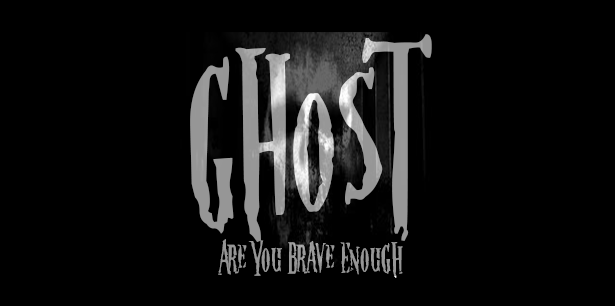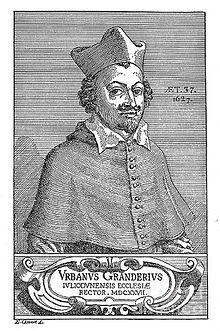
Tucked away in Lancashire, the eerie Chingle Hall exudes an aura of quiet malevolence. Its medieval stones whisper tales of the macabre and the unknown, tales that demand attention from anyone brave enough to listen.
Here, a phantom girl is rumored to traverse the moonlit corridors, her melancholic laughter echoing through time. Yet, she is not alone. The hall itself seems to come alive with unseen eyes, and the air vibrates with spectral energies.
Step inside Chingle Hall, and you'll find yourself immersed in a world where the past clings to the present with an unyielding grip. The architecture, with its ancient timbers and weathered stone, carries the weight of centuries.

The atmosphere here is one of solemnity and foreboding. Every nook and cranny tells a story, and the very walls seem to breathe with the memories of those who once called Chingle Hall home. As you navigate the labyrinthine halls and explore the hidden chambers, you may feel the presence of the phantom girl and other restless spirits.
They watch, they whisper
Poem
In the bygone days of yore,
In Lancashire's forgotten moor,
Stands an ancient manor, shadows old,
With secrets, mysteries untold,
Before priests' souls entwined in walls,
Before fame adorned these halls,
It dwelt as a humble abode,
Amidst fields where lavender flowed.
Amidst this tranquil, fragrant sea,
Lived a girl of youth and glee,
With beauty that could rival gods,
Born to a family at odds,
As she blossomed into a maiden fair,
Her kin were gripped by deep despair,
They deemed her beauty, a vile curse,
In the village, old men did nurse,
Unholy desires, wicked thoughts,
Causing her mother anguish and fraught.
Eleanor, a name in whispered hush,
Denied the world, kept from the crush,
Of school, of friends, of childhood glee,
Bound by her family's decree,
Hot-headed, yet wise beyond her years,
The months of May through September's cheers,
In lavender fields, she danced with grace,
Under the sun's warm, loving embrace.
But as life's sun doth always set,
Dark clouds loomed, a cruel vignette,
In those fields where innocence played,
A dim-witted boy, reckless, swayed,
With brutish hands, he sought to harm,
Eleanor's haven, her precious charm,
She fled from his menacing grasp,
Back to Chingle Hall's cold, stone-clad clasp.
Her cries, her tears, she did confide,
To her mother, there was no place to hide,
Though no flesh was torn, no blood was spilled,
A parent's right, their duty fulfilled,
To protect their child, their only pride,
In a life where hardships did coincide,
Chingle Hall, a roof they cherished dear,
But to keep it came a cost severe.
In pondered thoughts, the father's mind,
With darkness within, unkind,
Decreed that Eleanor should never see,
The light of day, forever be,
Confined to her room, locked away,
Her beauty fading, an unwanted display,
As years crawled by at a snail's pace,
Villagers thought she vanished without a trace.
Aged twenty, a woman's bloom,
The lock on her door, dark as tomb,
Her beauty, if anything, did grow,
Her parents feared what it might bestow,
Upon the unworthy, those nearby,
Growing older, her parents' sigh,
Led them to sell land to a worthy kin,
A house, a barn, a new life to begin.
From her window, in the dead of night,
Eleanor watched with all her might,
The horses gallop in the fields,
And what a horse needs, her heart reveals,
A stable boy with muscles strong,
And a mind that's utterly wrong,
Thus the curse's tale takes a stride,
In fate's hands, where it doth reside.
Eleanor caught the boy's keen eye,
Asking questions, trying to pry,
But villagers shunned and kept at bay,
Avoiding the topic, fleeing away,
One soul confessed, with warning dire,
Telling him to quench his curious fire,
Of a lovely maiden, cursed to roam,
By parents who kept her locked at home.
One night, the boy, with daring feat,
Took a ladder from the barn's discreet,
Steady steps, he climbed with care,
Tapping gently on her window's glare,
Two eyes met, full of fear and woe,
A whispered plea for silence, they'd bestow,
She opened her world, a secret unveiled,
Her heart's desires, love unbridled.
Though fear gripped her fragile soul,
An escape lay beyond her window's pole,
She decided to climb down with grace,
Running through fields at a frenzied pace,
Hand in hand, they found release,
In the lavender's fragrant peace,
But as dawn approached with its chilly breath,
She returned to solitude, her secret kept.
This clandestine affair, a hidden play,
Spanned many a night, though not the light of day,
Her father, no fool, sensed something amiss,
His daughter's happiness, a phantom's kiss,
In the darkness, he bided his time,
With old age, he fought a silent crime,
As he watched the boy with his cursed delight,
A father's wrath, a storm in the night.
He stormed into the barn, enraged, unkind,
A violent scene, a soul maligned,
Two figures entwined in the hay,
And in a moment, he took the day,
Flung the boy against the wall,
A sickening thud, a terrible fall,
No scream escaped the boy's pale lips,
As he lay still, life's final eclipse.
Eleanor's cries filled the air,
But her pleas could not repair,
The damage done, the dreadful night,
Her father's wrath, a brutal fight,
He dragged her away, her golden hair,
Locked her in her room, left her there,
Though it was four in the morn's chill,
He boarded her window with iron will.
The ladder burned in a blaze of fire,
As the barn succumbed to fate's desire,
The old man, tired, his strength depleted,
Returned to his wife, secrets uncompleted,
He shared the tale of that fateful night,
As his wife gazed in sorrowful fright,
Uncertain of what they both should do,
Their daughter's fate, a chilling view.
In the first light, the mother would try,
To mend the rift, to rectify,
But what she found behind the door,
Left her screaming on the floor,
Eleanor, drained of life, hung in despair,
A ghastly sight, too much to bear,
Her mother's shriek reached her husband's ears,
Who, guilt-stricken, fled with his fears.
He vanished, never to be found,
Leaving behind a haunted ground,
Chingle Hall, a place of woe,
Where lavender still dares to grow,
A reminder of Eleanor's fate,
In life and death, her soul's weight,
And she, forever bound to this place,
In lavender's embrace, her final grace.







